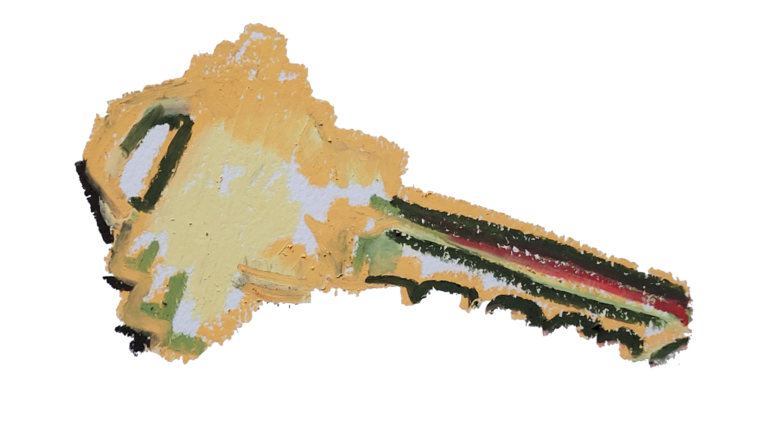
The first time I came home after being gone, I felt as if I was meeting myself for the first time. The apartment was the same—cluttered, askew, and dense with the scent of bodies being bodies.
My father glanced up from his desk when he heard the door open.
“You’re back,” he remarked. “We’re eating at 7.”
I used to believe that my home was hiding things from me. I had strange dreams about secret rooms tucked behind racks of clothing in my parents’ closet and treasure hidden in the folds of winter blankets.
“Are you looking for something?” my mother asked when she noticed me trying to dislodge a drawer sealed shut with old paint and humidity.
“I just wanted to see what was in there.”
“I think it’s empty. It’s been stuck for as long as I can remember.”
My parents were wary of leaving me alone as a child. I was sure that a bookshelf would fall on me or my popcorn would catch fire in the microwave, and I had a bad feeling about the man who lived on the 14th floor. At eleven, when I had long outgrown a babysitter, I went exploring in earnest. Alone, I found a dusty key at the bottom of a bowl of oranges and several paperback books of poetry in my father’s sock drawer. The inscriptions on the first pages read To David and To David, again. But I already knew that my father’s first wife was a poet, and none of our locks yielded themselves to the key. In the closet, I burrowed into the musky folds of old coats with my arms outstretched, but all I found was a chalky wall that left white residue on my fingertips—no hidden rooms. Eventually, I gave up looking and tried on my mother’s nightgowns and undergarments. I imagined a time when I too would smell powdery and dress like I had something to hide.
As I spent more time alone, I lost interest in finding something hidden. When I finally left, I worried that I had left something behind.
Now that I was back, I felt a new heaviness in the air. The wooden doorframes had warped so the only way to shut doors was to slam them, and a spot of rust on the refrigerator had spread like a rash. The dogs twitched nervously when my mother clanked down the hallway on her new crutches. She had broken her leg falling in the snow.
“A glass dining table represents an unstable family,” she declared at dinner.
I carved a circle in the cloudy grime on our table’s glass surface, which was scarcely visible under piles of outdated papers. “I thought you might want to read them,” my father said, as if the news did not reach me where I had been.
When my parents left for work the next day, I felt the familiar desire to discover something buried. The bookshelf seemed like a dull place to hunt for secrets, but a leatherbound volume on the bottom shelf caught my attention. Surely I had seen it before, but it must have seemed so uninteresting that it did not even register in my memory. The book was heavier than I expected. On the first page were pasted photographs of young people at a party, grinning and strewn about in the manner of those who know they are beautiful. The paint on the walls behind them was flaking off in long, mournful strips and beer cans stood precariously on leaning towers of books. As I flipped the page, I noticed how the threshold of the kitchen jutted out just so—it was undeniably our apartment. And the posture of the woman in the back corner of the photograph was undeniably that of my mother.
In the following pages, I watched her pose at the top of a mountain and kiss men I had never seen before. I noticed the way her cheeks pushed up past her eyes and her nose sunk below her top lip when she smiled. I hated these features of my own face, but on this stranger, they were charming. Most of the pictures were taken in our apartment, where the only recognizable features were the moldings and electrical outlets. Disheveled men leaned against walls now covered in my baby pictures.
I always knew, in a vague sort of way, that my mother had lived here long before I came around, but I had not considered the weight of accretion. The very floor and walls— my floor and my walls—were the site of her parties and bygone friends, the ones she sometimes talked about as if she had been alive forever.


